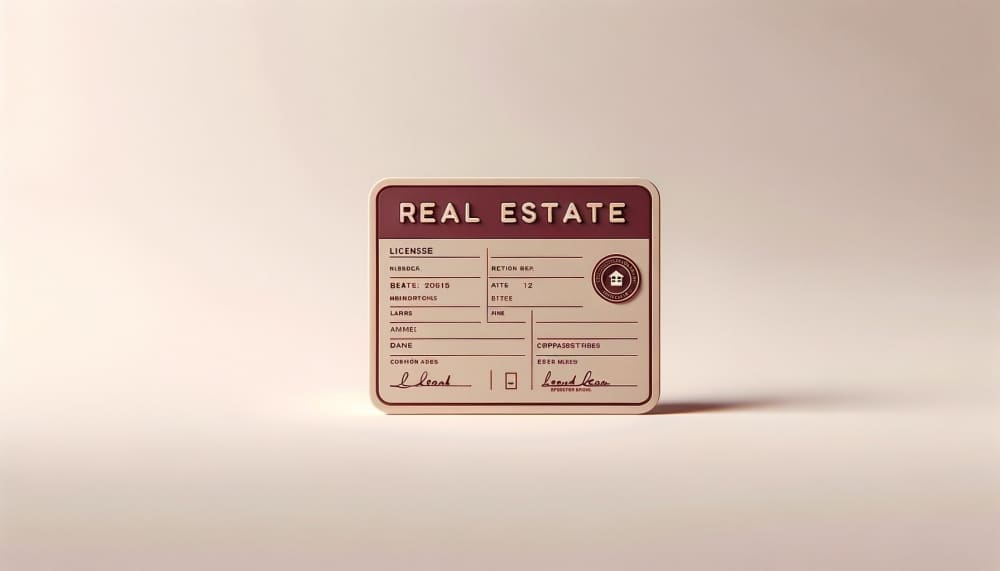Estimated reading time: 5 minutes
Skip Ahead
Summary
In the realm of real estate, a license is not just a piece of paper, but a crucial key that unlocks a myriad of opportunities and signifies professional competence.
Obtaining a real estate license can open doors to a rewarding career. It’s not just about the financial benefits, but also about personal growth and a profound sense of accomplishment that comes with mastering a complex and dynamic industry.
So, what’s the journey like to secure a real estate license? And what’s the financial commitment, especially in regions like Manitoba?
This article aims to answer these questions. It will explore the benefits of obtaining a real estate license, the process, and the costs involved.
This guide will provide valuable insights whether you’re considering a career in real estate or looking to enhance your credentials. Let’s explore the benefits of obtaining a real estate license.
Understanding Real Estate Licensing
A real estate license is a credential that authorizes individuals to practice real estate professionally. It’s a testament to their knowledge, skills, and adherence to industry standards.
Obtaining a license involves a process. This includes education, exams, and meeting specific requirements set by regulatory bodies.
What is a Real Estate License?
A real estate license is a permit. It allows individuals to conduct real estate transactions legally.
This includes buying, selling, and renting properties on behalf of clients. It’s not just a mark of professionalism, but a testament to your knowledge and skills, enhancing your credibility in the industry.
The Legal Necessity for Professional Practice
In most regions, practicing real estate without a license is illegal. This is to protect consumers from fraudulent practices.
A license ensures that agents have the necessary knowledge and skills and holds them accountable to ethical and professional standards.
The Path to Licensure
The journey to obtaining a real estate license involves several steps. It requires commitment, time, and financial investment.
The process varies by region. However, it generally involves education, passing an exam, and fulfilling application procedures.
Education and Exam Requirements
Prospective real estate agents must complete a pre-licensing course. This course covers real estate principles and laws.
After completing the course, candidates must pass a state licensing exam. The exam tests their understanding of real estate laws and ethical standards.
Here are the general steps to licensure:
- Complete a pre-licensing course.
- Pass the state licensing exam.
- Apply with proof of education and exam results.
- Pass a background check.
Real Estate License in Manitoba: Costs and Process
The process for obtaining a real estate license in Manitoba is similar. However, the costs and specific requirements may vary.
The Manitoba Real Estate Association oversees the licensing process, provides the necessary education, and administers the licensing exam.
Top Benefits of Having a Real Estate License
Obtaining a real estate license opens up a world of opportunities. It provides numerous benefits that can enhance your career and personal growth.
The advantages are significant, from access to exclusive listings to higher earning potential. Let’s explore these benefits.
Access to MLS Listings and Networks
A real estate license grants you access to Multiple Listing Service (MLS) databases. These databases contain comprehensive real estate data unavailable to the public.
Access to MLS listings expands your market knowledge. It also provides networking opportunities with other real estate professionals.
Higher Earning Potential and Career Advancement
Licensed real estate agents often earn more than their unlicensed counterparts. They receive commissions from property sales, which can be substantial.
A real estate license also opens doors for career advancement. It allows you to specialize in different real estate sectors.
Independence and Flexibility in Your Career
A real estate license offers career flexibility. You can set your schedule and choose your niche market.
You also gain the independence to represent yourself in personal real estate transactions. This can save you commission fees.
Professional Recognition and Credibility
A real estate license enhances your professional credibility. It shows clients you have the knowledge and skills to guide them through complex transactions.
Being licensed also establishes trust. Clients are more likely to entrust their property transactions to a licensed professional.
Investing in Your Future with a Real Estate License
A real estate license is more than just a professional credential. It’s an investment in your future.
This license equips you with the skills and knowledge to navigate the dynamic real estate market, preparing you for a rewarding and sustainable career.
Personal Growth and Lifelong Learning
Obtaining a real estate license promotes personal growth. It challenges you to learn new things and adapt to market changes.
Continuing education is crucial to maintaining your license. It ensures you stay current with industry trends and regulations.
Building a Personal Brand and Expanding Opportunities
A real estate license allows you to build a personal brand. You can market yourself as a real estate expert, enhancing your professional image.
The license also expands your career opportunities. It opens doors to related fields like property development and real estate investment trusts (REITs).
Frequently Asked Questions
We understand that you may have questions about obtaining a real estate license. Here, we address some of the most common queries.
How Much Does a Real Estate License Cost in Manitoba?
The cost of a real estate license in Manitoba varies. It depends on the course provider and additional expenses like exam fees.
On average, you can spend around $3,000 to $4,000. This includes course fees, exam fees, and licensing application fees.
How Long Does It Take to Get a Real Estate License?
The time it takes to get a real estate license depends on your pace of study. It also depends on the time required to complete the required education and pass the exam.
On average, it can take anywhere from 4 to 6 months. This includes time for coursework, exam preparation, and application processing.
Can I Work in Different Real Estate Sectors with a License?
Yes, a real estate license allows you to work in various sectors, including residential, commercial, and industrial real estate.
Your license also opens doors to related fields, including property development and real estate investment trusts (REITs).
Conclusion
Obtaining a real estate license is a significant step towards a rewarding career. It offers numerous benefits, from higher earning potential to personal growth. Whether in Manitoba or elsewhere, a real estate license can open doors to a world of opportunities in the dynamic real estate industry.





